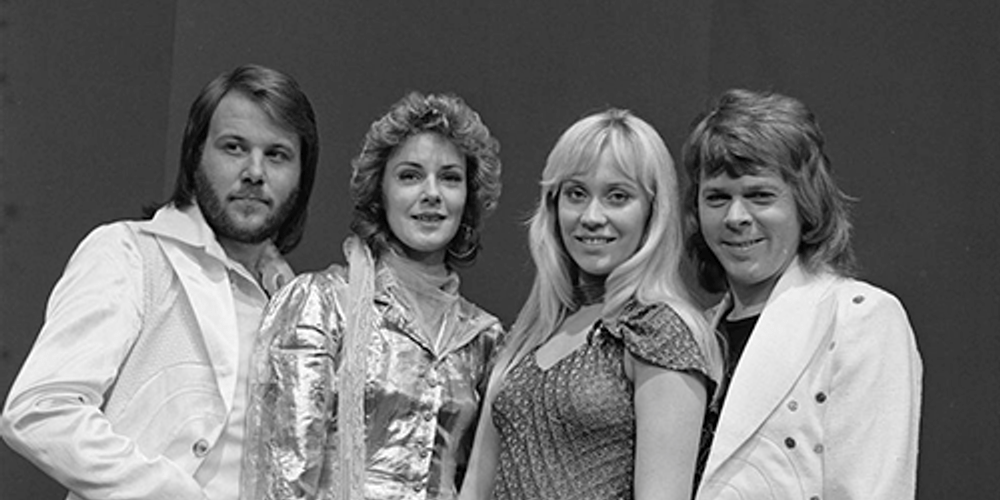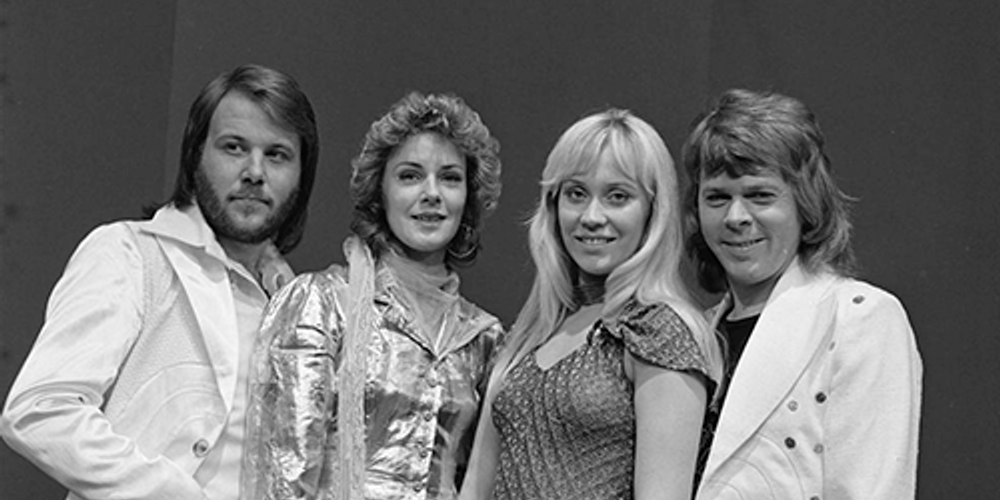Nostalgia and Nothing More: ABBA’s Comeback Falls Short
Abba's "Voyage" is the Swedish group's first album since 1981. Staff Writer Sarah Weiner '24 argues that it might also be the group's worst. Still, she finds a few songs that manage to stand out from the surrounding mess, retaining the groups signature high-energy style.


On Nov. 5, the Swedish pop group ABBA released “Voyage,” their first new album since 1981. For those ABBA fans who have been waiting for new music since Ronald Reagan’s presidency, the new tunes do not quite live up to the classics. And if you weren’t already an ABBA fan, “Voyage” surely isn’t going to convert you.
“Voyage” was first announced on Sept. 2. On the same day, ABBA released the dual singles “I Still Have Faith in You” and “Don’t Shut Me Down.” These tracks promised a dynamic, exciting, and relevant album.
Although “I Still Have Faith in You” is an emotional ballad pushing five minutes long, which sometimes leaves you wishing the song was already over, it attempts to cover the reunion of the group after four decades. There’s a lot to cover there, so I’ll cut ABBA some slack. Mostly, as the opener of the album, the song provides a delightful return to ABBA’s music with a calm introduction that crescendos into a vibrant climax.
“Don’t Shut Me Down,” the fourth track on “Voyage” and the stronger of the two singles, describes a person (or perhaps a four-person Swedish band?) coming back “reloaded” and “fired up” after a long hiatus, having “learned to cope, and love and hope.” It is a high-energy confidence booster with just the right amount of piano glisses — the perfect song to listen to as you walk across campus to propose a paper topic to the professor who shot down your last idea.
“Just a Notion” follows “Don’t Shut Me Down” as the fifth track, and was released as a single on Oct. 22. The song was originally recorded in 1978, which explains its intense resemblance to songs from “The Album” (1977) and “Voulez-Vous” (1979). It is danceable and lively — everything I hope for from an ABBA song — but falls short in its one-note-ness. The verses and chorus barely vary in melody and pace, and with no bridge, “Just a Notion” can come off as just one dense block of music.
The other two songs that make up the first half of “Voyage,” “When You Danced with Me” and “Little Things,” are by far the weakest on the album. I was caught off guard by the Irish theme of “When You Danced with Me.” The only justification for the song’s hints of Irish folk music is that the desperate subject of the song remains in Kilkenny, after being left by her dance partner/lover/friend? Who knows — the song is vague and lacks any resolution or narrative arc, both of which I expected after the first verse began to tell a clear story. To add fuel to the fire, ABBA mimics the melody of the titular line from their legendary 1977 song “Thank You for the Music” in the track’s line “You’re just here for the music.” I was confused by this callback, but even more so, I wanted to turn “Voyage” off and play ABBA’s reliable older hits instead.
ABBA throws us for yet another loop by slipping in a “Twinkle Twinkle Little Star” inspired Christmas song after the arbitrarily Irish tune. “Little Things” depicts “a lovely Christmas morning.” The appearance of the “Twinkle Twinkle Little Star” motif on the xylophone, which is paired with a children’s chorus that comes in at the end, transports me out of the disco club I thought I was in and straight back to my second grade holiday concert.
The sixth and seventh songs on “Voyage,” “I Can Be That Woman” and “Keep an Eye on Dan,” share the same weakness: they are musically brilliant and lyrically disastrous. “I Can Be That Woman” tarnishes its rich and passionate piano score with the voice of a woman desperately lamenting that she has let her husband down, while also singing about his violent habits…? What could be a serious song is undermined by the fact that a dog named Tammy is also a main character. I can’t listen to this dramatic saga with a straight face when it is interrupted by updates on Tammy swishing her tail and licking peoples’ fingers. Perhaps a failed attempt at a “Marley and Me” vibe.
“Keep an Eye on Dan” is more enjoyable, mostly for its similarities to ABBA’s typical disco energy — it is reminiscent of “Gimme! Gimme! Gimme!” Once again though, it is hard to enjoy the song without getting tripped up by its bizarre lyrics, including: “I know that this shouldn’t be / A traumatic event, but it is.” ABBA, if you’re talking about listening to this song, you’re right. That’s harsh, but while its musical score begs for a dance party, the song’s lyrics chronicle co-parenting during a painful divorce. It’s difficult to let loose when constantly being told to “keep an eye on Dan.”
The ninth track on “Voyage,” “No Doubt About It,” is the strongest part of the album’s second half. ABBA uses upbeat electric guitar and quirky percussion to score the narrator’s confession of picking a fight with their partner. Perhaps because the rest of “Voyage” has used up all of ABBA’s available sap supply, this song refreshingly does not take itself too seriously and insists that we all mess up sometimes.
“Bumblebee” and “Ode to Freedom” sandwich “No Doubt About It,” which would have been an exciting close to “Voyage” instead of the melancholy “Ode to Freedom.” The ode includes a lovely assemblage of strings, which is unusual for the disco/pop group. Though, the track gets a little too unusual with the constant harmonious singing about the “elusive” qualities of freedom — an awkward attempt at a political statement.
If commentary on freedom wasn’t enough, ABBA also endeavors to cover climate change. “Bumblebee” includes endearing moments of flute and luscious vocals, all communicating the fear of being “trapped / Inside a world where all is changing / Too fast for bumblebees to adapt.” To this I say, the song is quite pretty, but global warming isn’t.
If you are curious, give “Voyage” a listen. It won’t live up to ABBA’s older music, and it’s not worth enduring once you’ve had enough. But, if you’re a longtime fan of the super Swedes, it might give you a sense of nostalgia that makes you feel good — and that’s really the reason to listen to ABBA anyways.





Comments ()